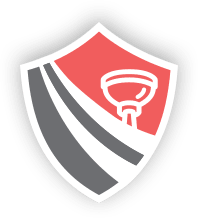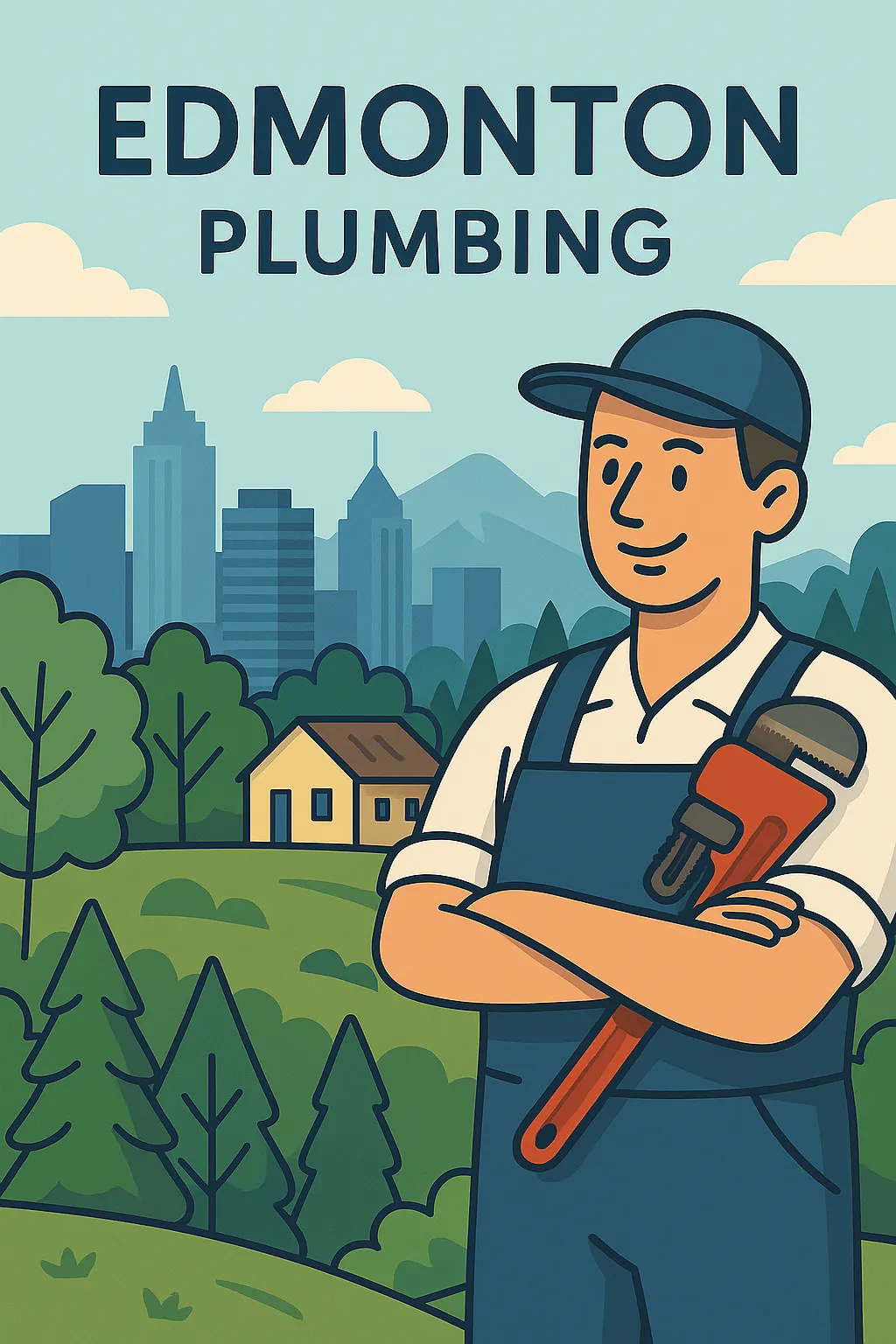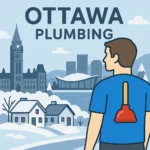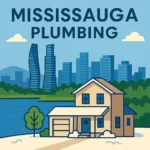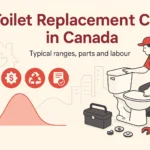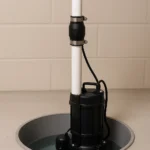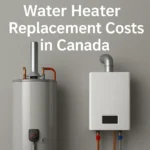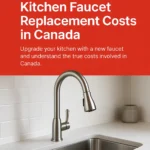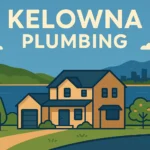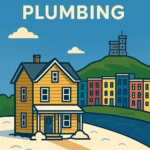Introduction
Edmonton, Alberta’s capital city, is home to over 1 million residents and sits along the North Saskatchewan River. With some of the hardest water in Canada and one of the coldest urban climates, plumbing systems here face unique challenges. From frozen pipes during –30 °C winters to limescale clogging fixtures year-round, proactive maintenance is essential for Edmonton homeowners.
- Introduction
- Water Source, Quality & Hardness
- Housing Stock & Plumbing Systems
- Common Plumbing Issues in Edmonton
- Seasonal & Climate Considerations
- Plumbing Costs in Edmonton
- Regulations & Permits
- Case Study: Winter Burst Prevention in Mill Woods
- FAQs (Edmonton-specific)
- Tips for Edmonton Homeowners
- Conclusion
Water Source, Quality & Hardness
- Edmonton sources its water from the North Saskatchewan River, treating it at plants including E.L. Smith and Rossdale. epcor.com
- Water quality consistently meets Alberta and Canadian drinking-water standards, with full monthly reports available via EPCOR. epcor.com
- Hardness is about 10.2 gpg (165 mg/L CaCO₃), classed as “hard” water. Aquatell Canada
- ⚠️ Hard water causes scale buildup inside kettles, hot water tanks, dishwashers, and faucets.
- ✅ Installing a water softener is highly recommended to extend the lifespan of appliances.
Housing Stock & Plumbing Systems
- Heritage homes (Strathcona, Old Glenora): Many still have cast iron or galvanized pipes prone to corrosion and leaks.
- Post-war bungalows: Found across neighborhoods like Mill Woods, with aging copper and clay sewer laterals.
- Newer suburbs (Terwillegar, Windermere): Built with modern PEX or copper, but still face scaling from hard water.
- Rural fringe: Acreages often rely on private wells and septic tanks, which require different maintenance than city sewer connections.
Common Plumbing Issues in Edmonton
- Hard water scaling
- Clogs aerators, stains fixtures, reduces appliance efficiency.
- Shortens the lifespan of hot water tanks.
- Frozen and burst pipes
- Winter temperatures below –25 °C regularly freeze uninsulated lines.
- Burst pipes can flood basements and cost thousands to repair.
- Hot water tank failures
- Sediment buildup reduces efficiency and causes premature leaks.
- Basement flooding
- Spring thaw combined with heavy rain can overwhelm sump pumps and sewers.
- Older infrastructure
- Heritage homes and bungalows often have outdated piping and clay laterals, vulnerable to tree root intrusion.
Seasonal & Climate Considerations
- Winter: Prolonged cold → risk of frozen supply lines.
- Spring thaw: snowmelt + storm runoff = basement water problems.
- Summer storms: heavy rainfall can lead to sewer overflows/backups.
- Year-round: maintenance for hardness (descaling, water softeners), fixture care.
Plumbing Costs in Edmonton
Like other major Canadian cities, Edmonton plumbers typically charge a minimum service call of $300 before tax, which covers the first hour or an initial inspection.
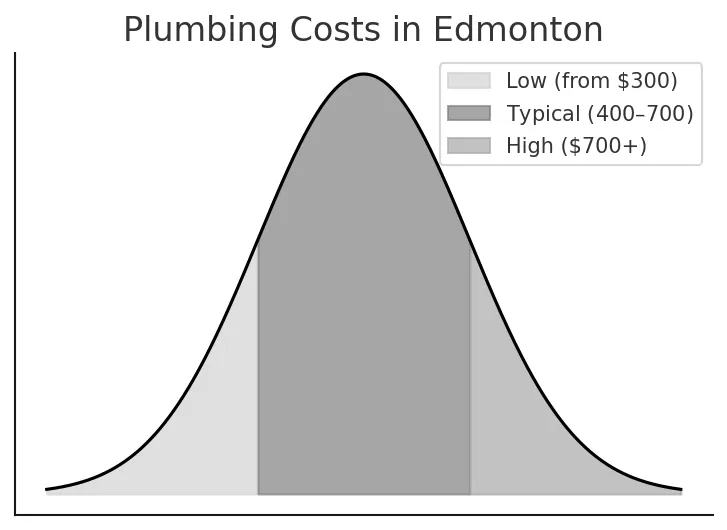
| Service | Low | Typical | High |
|---|---|---|---|
| Unclog a drain | $300 | $400 | $700+ |
| Replace a faucet | $300 | $450 | $850+ |
| Hot water tank replacement | $1,400 | $2,000 | $3,500+ |
| Emergency after-hours call | $450 | $700 | $1,200+ |
⚠️ Note: Prices exclude permits, after-hours premiums, and materials. Always confirm estimates with your plumber.
Regulations & Permits
- Plumbing permits are required under the Alberta Safety Codes Act for many types of plumbing work: installing/altering drains, fixture installation, backwater valves, etc. City of Edmonton
- Maintenance or replacement of existing fixtures in the same location with similar components often does not require a permit. City of Edmonton
- Work must be done by licensed plumbers/contractors for many types of jobs; homeowners performing work themselves may need to apply with proof of ownership or permit. City of Edmonton
Case Study: Winter Burst Prevention in Mill Woods
A homeowner in Mill Woods had multiple frozen pipe incidents during −30 °C cold snaps. In 2022, they added insulation on exposed plumbing, installed heat tape, and rerouted outdoor hose connections to interior shut-off. Cost was approx. $2,000. During the severe 2023 winter, their pipes stayed intact — no bursts or water damage.

FAQs (Edmonton-specific)
- Is Edmonton’s water very hard?
Yes — around 10.2 gpg (165 mg/L). It’s high enough that scale, appliance wear, and fixture issues are common without mitigation. - Should I install a water softener?
If you notice scale deposits, dishware staining, or your appliances are aging fast, then yes. Softener installation is a common personal upgrade. - Do I need a permit for replacing a faucet or sink?
If it’s simply replacing an existing fixture in the same location with the same kind of component, often no. But if you change location, add new piping, drains, or add features like backwater valves, you will need a permit. - How do I prevent frozen pipes?
Insulate exposed pipes, shut off and drain outside hose spigots, consider heat tape for vulnerable pipes. - Who do I call for emergency plumbing or inspections?
Use a licensed plumber. For permit questions, contact the City of Edmonton’s Safety Codes department.
Tips for Edmonton Homeowners
- Install water softeners or do periodic descaling.
- Insulate and winterize plumbing before cold sets in.
- Maintain hot water tanks (flush annually).
- Install sump pumps or ensure good drainage around basement foundation.
- Replace old/damaged supply lines or severely corroded pipes.
Conclusion
Edmonton homeowners face hard water, extreme winters, and flood risks that make plumbing care critical. With preventative upgrades and regular maintenance, you can avoid costly emergencies and extend the life of your plumbing system.
👉 Book a licensed plumber in Edmonton today at unclogit.com or call 604-496-1661.
